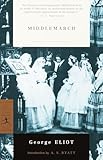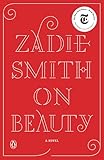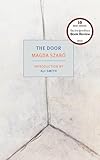
In the past two years of my life I’ve moved many times, ricocheting through three places that I’d call home: Budapest, Hungary; my childhood home in Ohio; and several different places in my college town—landing here, in Boston, where I know only a handful of people and am starting literature grad school. This is all much to the surprise of my family, who remembers my childhood hatred of change and my being a bit of a terror when we lived a year abroad.
It’s been a joyful, dizzying two years; it’s also held some of the most lonely days I’ve ever experienced. The sort of loneliness that comes with moving around is something peculiar. I find it to be something in between the knee-to-the-gut of heartbreak and the blissful confusion early on in a vacation—some kind of marriage of possibility, overwhelmedness, and some slight grief. There’s an almost physical wrench to it, to be sure, but during this move I’ve been thinking that perhaps there is value in being lonely. I’ve done some of my best thinking—and most certainly my best reading—in the early, lonely days of these moves.
This reading has been some of the most immersive of my entire life, the kind that I crave when doing other things or with real people. Perhaps this is because the books I’ve read at these times have, inadvertently, featured lonely people, who provide good company. (Perhaps this is also because I don’t really have any plans yet.) Either way, I’m here to offer—to all those moving away, wallowing in the melancholic last days of summer, or possibly needing something to bring them down out of euphoric joy—a booklist to encourage you in your loneliness.
 First (always) Middlemarch by George Eliot
First (always) Middlemarch by George Eliot
I’m not sure I’ve ever read a single novel in such varied circumstances before: I started sporadically two years ago, and then began again and devoured Middlemarch over the fall in transit around Europe—on a bus to Prague, marooned overnight in a Ukrainian train station, in my tiny Budapest apartment. It is the kind of book that can go places with you, probably because it’s such an ecosystem in itself. It feels like a portable home. You’ll be immersed whether reading aloud to your friend who has just been hospitalized in a foreign country or sitting in your favorite café. I found many of the characters to be just as lonely as I surmised myself (looking at you, Dorthea), but there’s such a surfeit of them that you’ll soon be spending your free time thinking about them instead of missing your old friends and dwelling on your current lack of new friends.
 The Lone Pilgrim by Laurie Colwin
The Lone Pilgrim by Laurie Colwin
A friend gave me this book over the summer and it floored me, despite my general preference for novels over short stories. I canceled plans with friends I was soon to leave in order to read, and reread, and reread. I was infatuated with the characters and their bizarre but lovely lives. These women were like none I’d ever read before: vibrant, smart, even-keeled, sometimes potheaded. Though many of the stories were very romantic, I found the collection to celebrate independence and indeed, loneliness. The titular story ends with this: “Your imagined happiness is yours. Therefore, you lose your old bearings. On the one side is your happiness and on the other is your past—the self you were used to, going through life alone, heir to your own experience. Once you commit yourself, everything changes and the rest of your life seems to you like a dark forest on the property you have recently acquired.” Colwin makes me want to go it alone, basking in the space of my relatively empty home and unplanned days.
 On Beauty by Zadie Smith
On Beauty by Zadie Smith
While I’m a bit obsessed with Zadie Smith, and I’d probably agree that any of her books might help you inhabit your loneliness, I think On Beauty might be her best for the task. This book is almost a talisman for me at this point—I reread it often, and it’s moved far and wide with me. It’s the kind of book I’ve studied and written about and know my way through easily, but Smith is such a master that I’m delighted anew each time. This familiarity is certainly one reason I return to it, often during moves. Another reason is that On Beauty makes me appreciate being alone, as it dwells on the sheer dysfunction of human relationships and families, especially via the incorrigible Howard Belsey. And there is Katie Armstrong, narrator of a single, lovely chapter, who puts words to the forlorn experience of every slightly naive student in an upper-level class who learns that their theory class isn’t about art or literature at all. Yet despite its cynicism and some potentially horrible characters, the novel somehow manages to be funny and charming and quite hopeful. And totally absorbing, in that classic Forsterian style.
 The Door by Magda Szabo
The Door by Magda Szabo
I’m including this Hungarian novel not only as a sentimental choice, but because it deserves a wider audience than it’s had and I’m recommending it to everyone. The Door, translated from Hungarian to English in 2015, wrecked me in an already wrecked state last January. The very reading of it changed how I thought about other people—The Door dwells on humans and their secrets and suggests a gruff sort of love that might entail just leaving people alone. The tangled relationship between Magda, a writer, and Emerence, her housekeeper, both exacerbates and celebrates the very perils of relying on someone else. It’s brilliant and heartbreaking. By the end, you will be glad to be on your own—but the language, the women, and the dog (Viola!) are all excellent company for dark days.
 My Name is Red by Orhan Pamuk
My Name is Red by Orhan Pamuk
I picked this novel up for my most recent move. Though for some it might be a bit of blast from the past—the setting of 16th-century Istanbul aside—I’m coming off of an end-of-summer Pamuk binge, and this is by far my favorite (though Pamuk’s 2014 novel, A Strangeness in My Mind, deserves an honorable mention here for a very lonely character). My Name is Red is terrifically complex, a murder mystery woven together with threads of religious fervor, theories about art, sex, and power. Perhaps by dint of the narration, which isolates each character in first person perspective—including the murderer, a gold coin, and a corpse, among other characters—or the manner in which these characters address and sometimes even mock the reader’s response, I found it to be the perfect lonely read. One character, recently returned to Istanbul, thinks back on his reading abroad and muses, “Books, which we mistake for consolation, only add depth to our sorrow.” I would concur, especially in this case. My Name Is Red is engrossing, disturbing, and very difficult to put down, even when you may or may not be running late to your first seminar. And who else might be more forlorn than you right now but an actual murderer?
Image Credit: Maxpixel.





